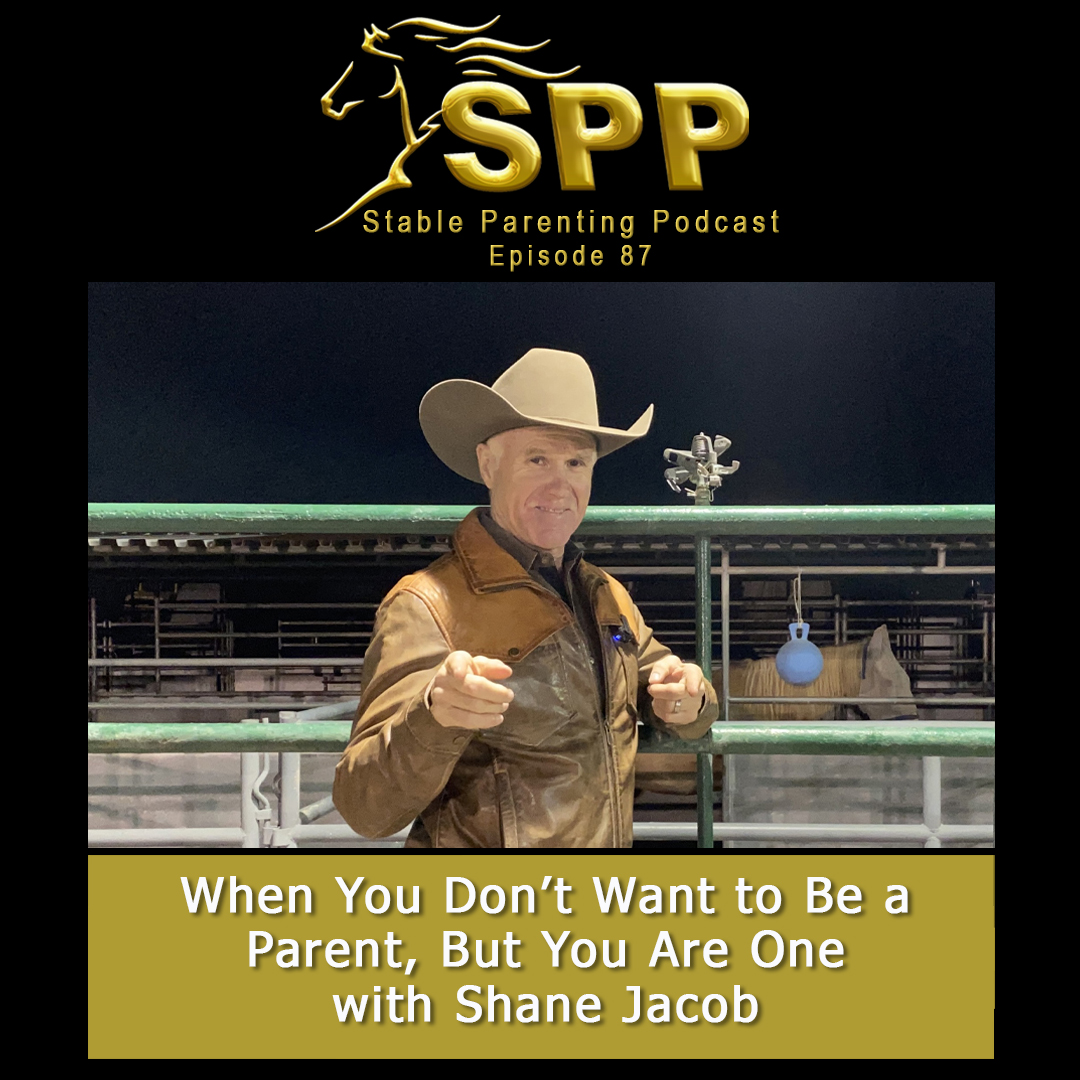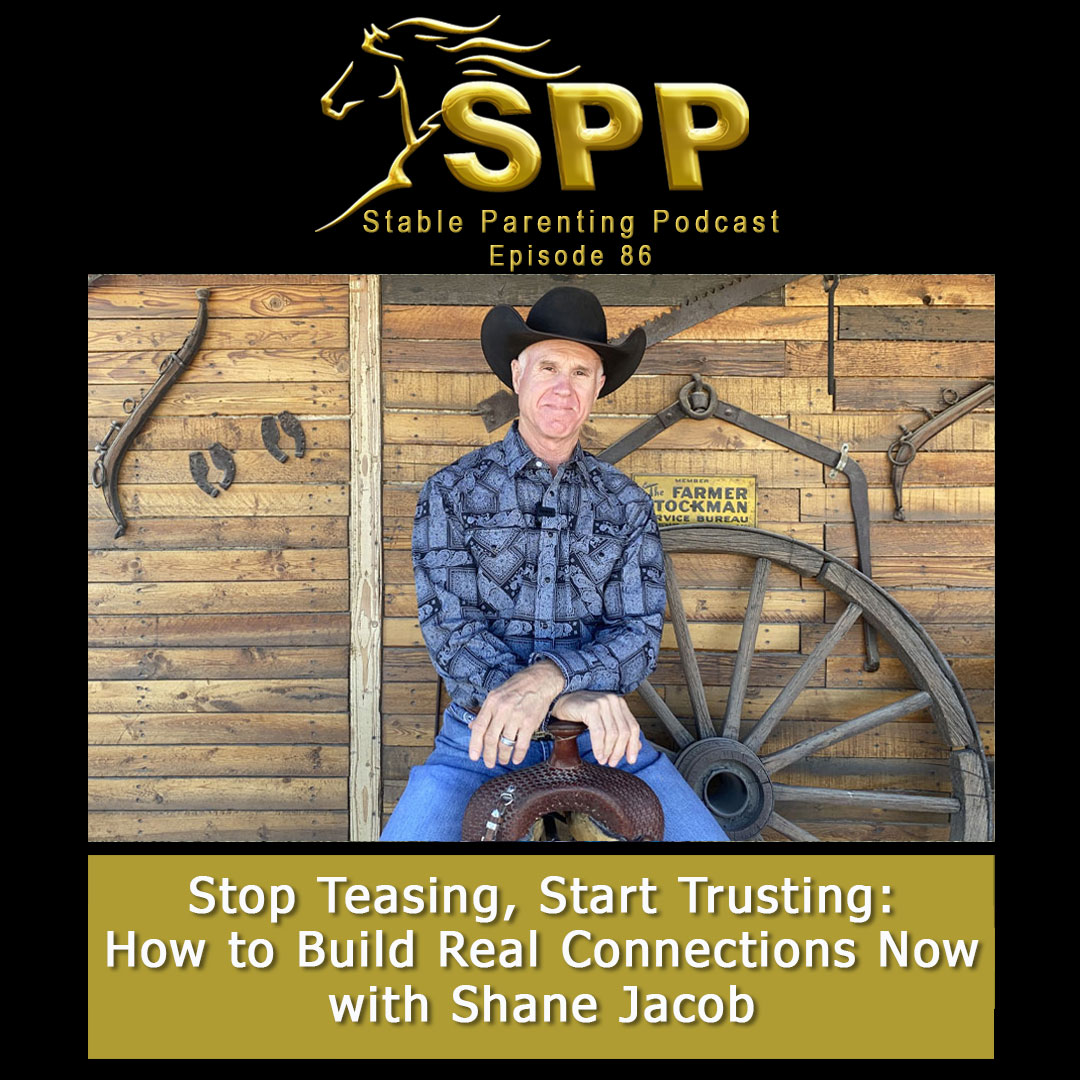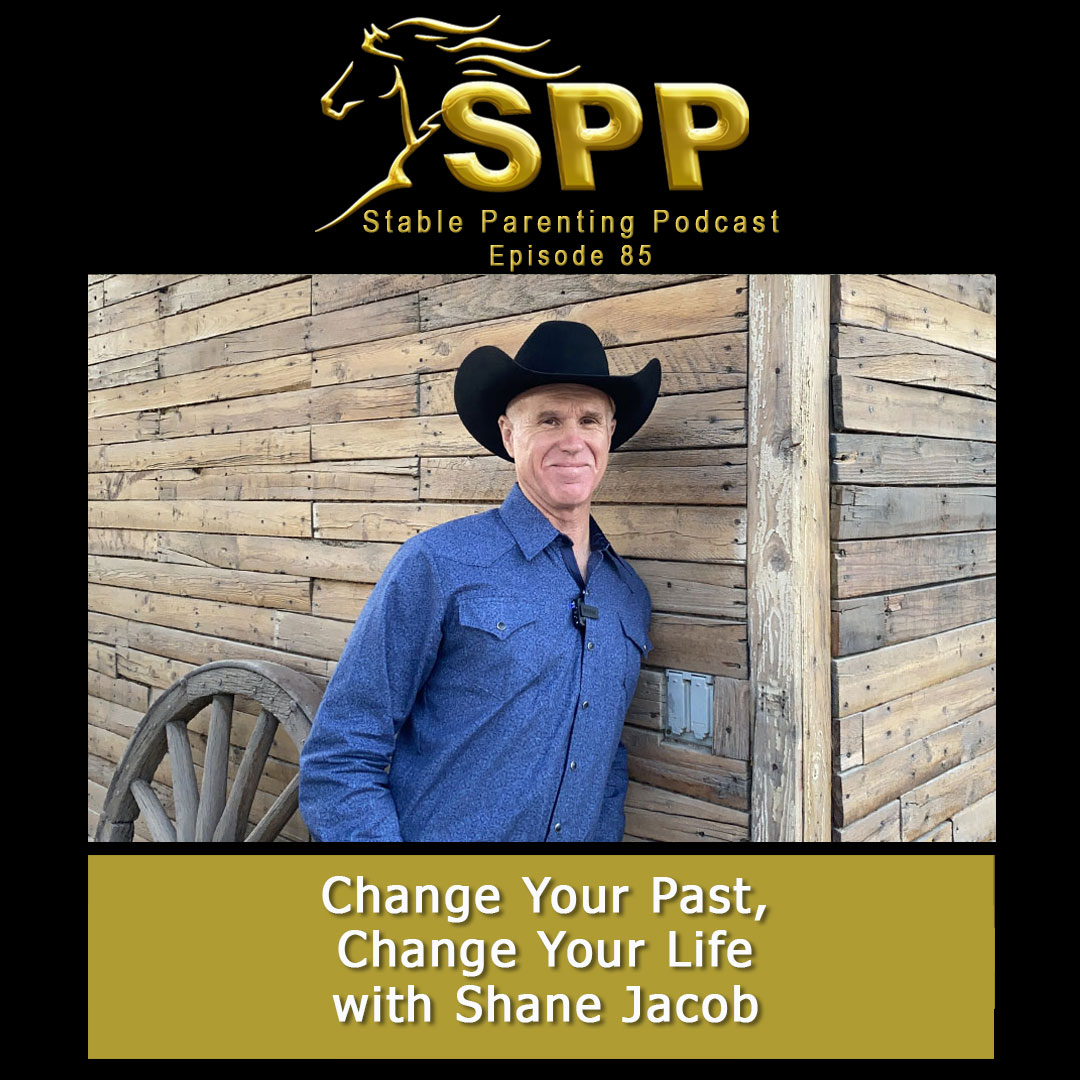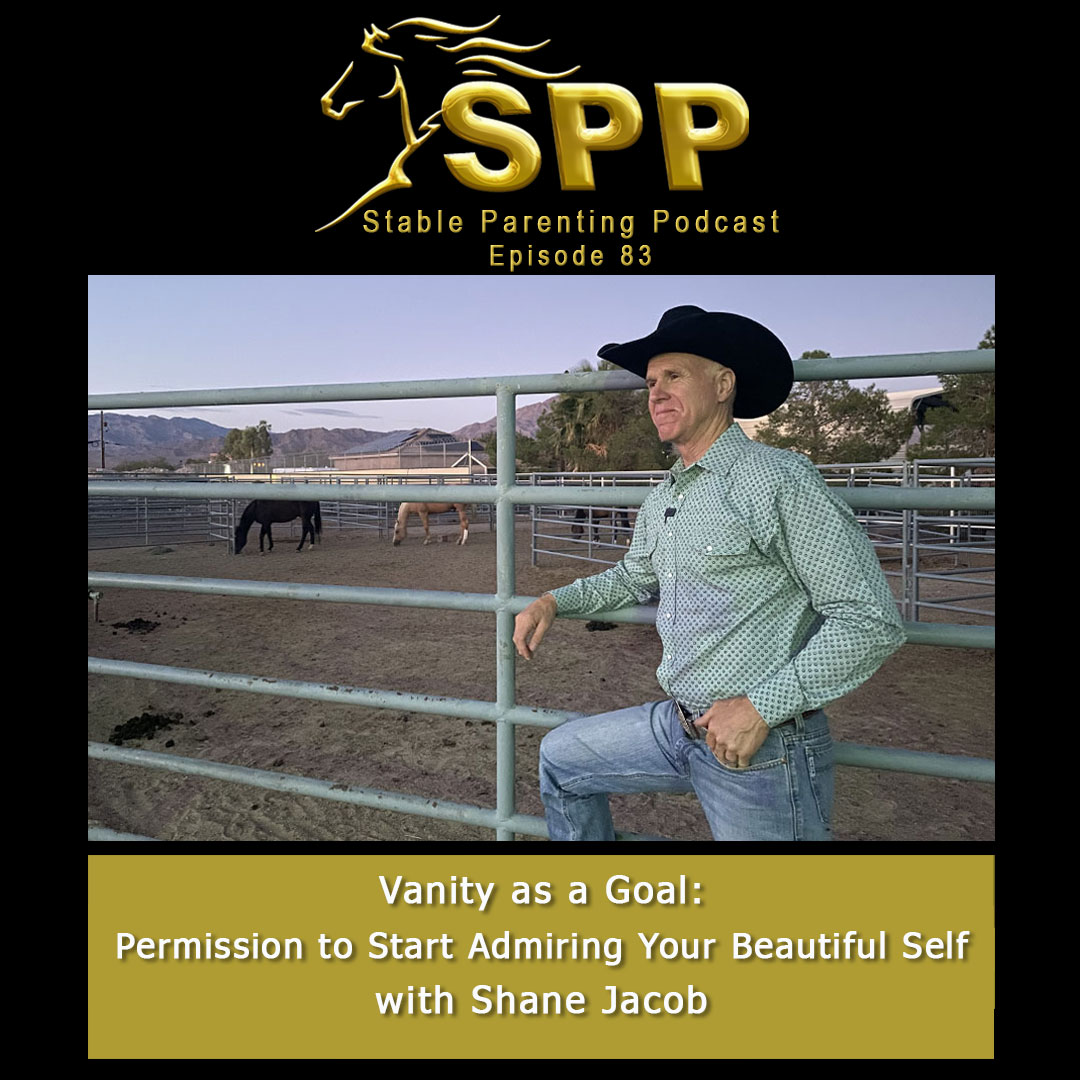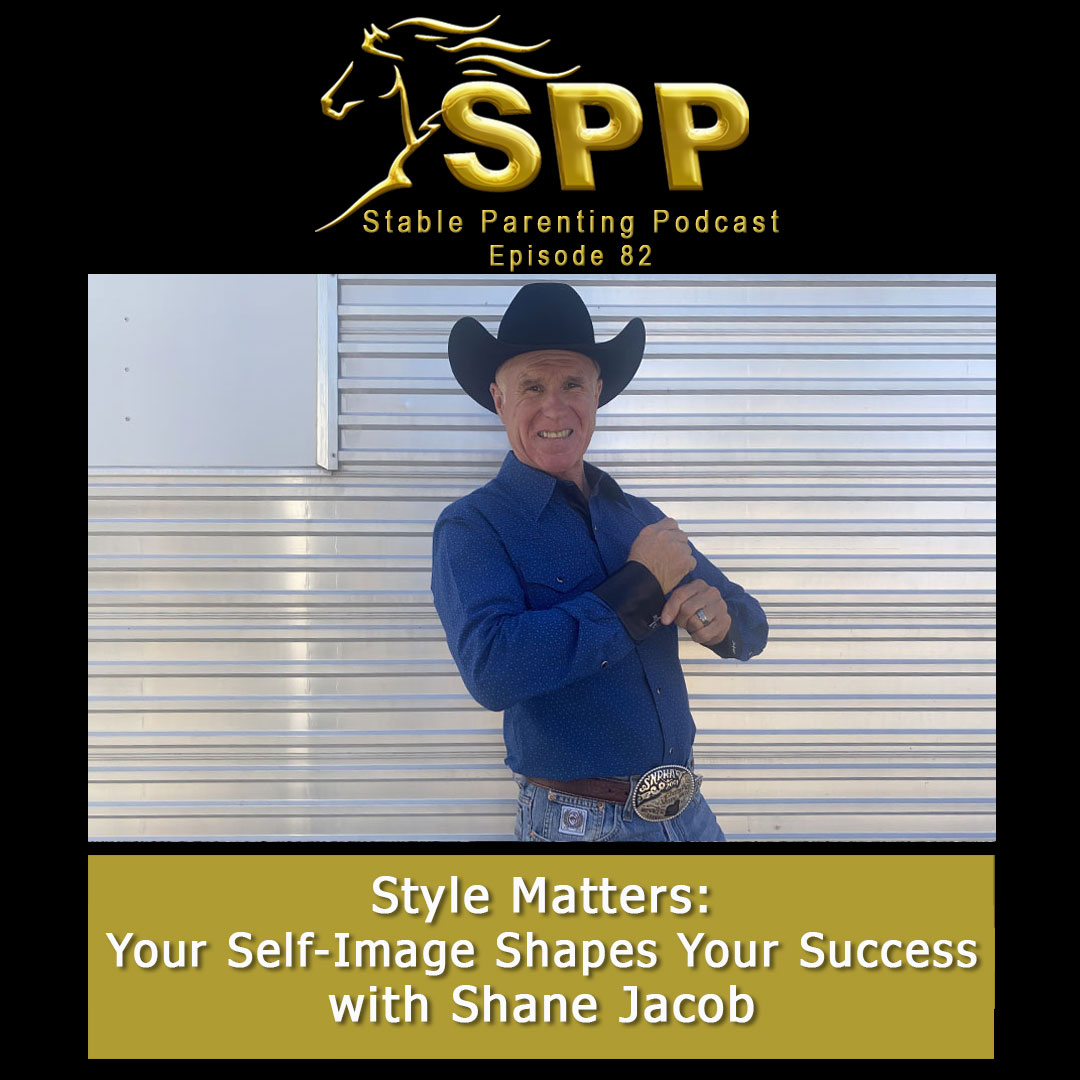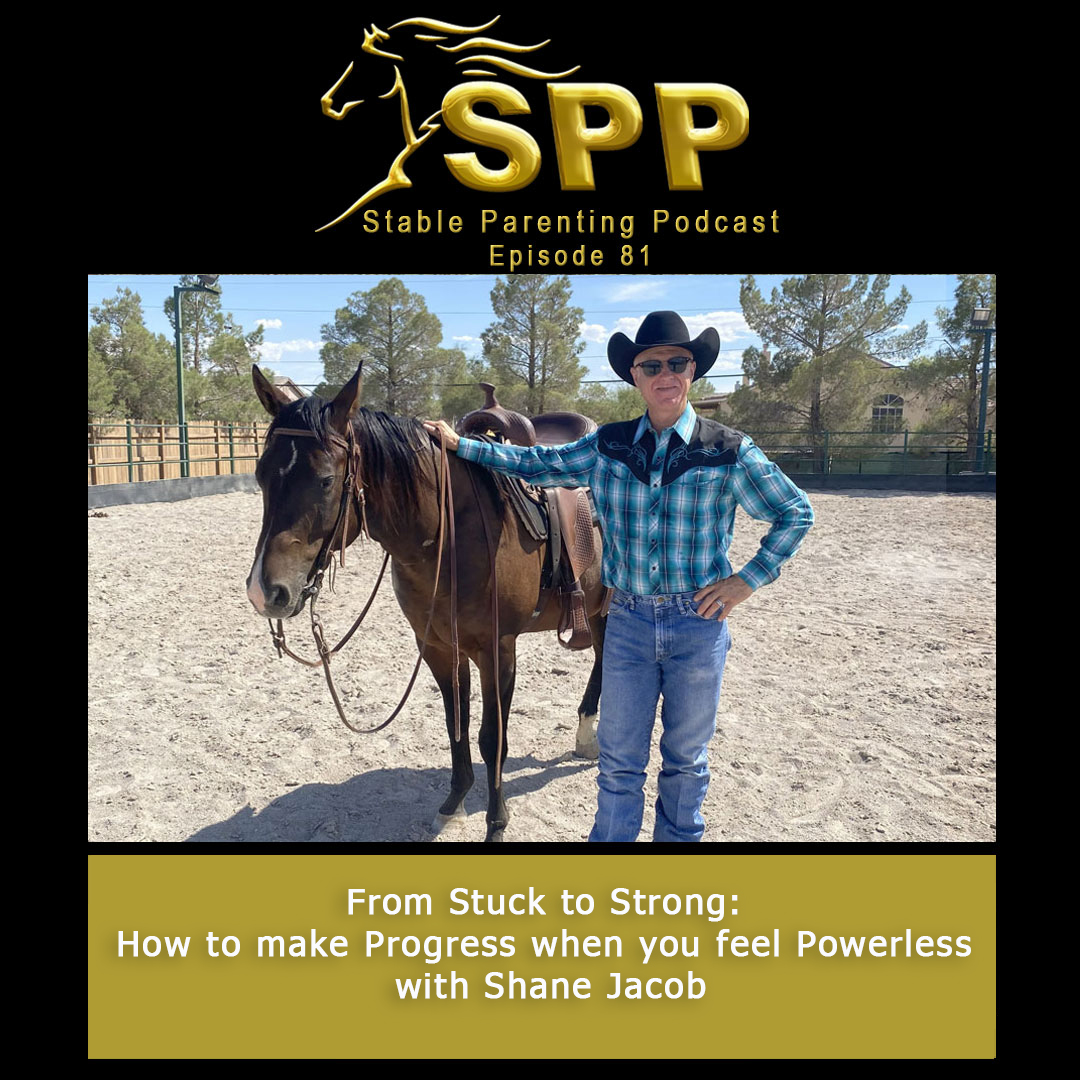Shane shares how to manage emotions, respond with purpose, and parent with power when words hurt.
Welcome and Introduction
Welcome to this week's You Are Destined for Greatness. I appreciate you taking your time to be here with me today. I'm coming to you from out here in our hay yard here in Las Vegas, Nevada, if you didn't know. I'm also in the horse feed business, and so, well, here we are.
Today, I'm very excited to be wearing another one of our new Cowboy Cuffs prototypes. All of the Cowboy Cuffs have a French cuff, a satin French cuff. I've got my cool custom cuff links on, which are my horse brand that my wife gave me as a gift. Love these cuff links. Love the shirts for men and women.
This particular shirt is called Gun Rifle Blue, one of my favorites. I like the colors a lot. Cowboy Cuffs—Elevate Your Style, Elevate Your Life, Elevate Each Other.
Okay, and you know the real thing about Cowboy Cuffs is, the truth is, it's hard to go out into the world day in and day out and be a total badass when you don't look like a total badass. So Cowboy Cuffs is here to help, men and women. Look for us, coming soon at cowboycuffs.com.
The Power of Words and Mind Management
So you know one thing, what I want to talk about today is, I've been hearing a lot about, you know, "Hey, you said that, and it hurt my feelings," and "You really upset me when you said X, Y, Z."
My wife recently had something, a conflict at work that she needed to manage with a couple of people because somebody said something that triggered another person and made them feel a certain way. And we're very conditioned to look at the world and think that people's words are affecting how we feel. We're just conditioned to think that. We just kind of accept it a lot of the time.
Yet at the same time, ever since most of us were very small, we heard that “Sticks and stones can break my bones, but words can never hurt me.” Well, is that just a bunch of hoo-ha? Because it seems like they kind of hurt sometimes. So what's the deal?
You mean they don't physically hurt, but emotionally and mentally they kind of hurt? Because let me tell you something, something's going on here. When you said that, I felt something. So what's the deal?
This is part of mind management. It's part of the things that we do in Stable Living Coaching. But basically here's, I'll give you an example, okay? It's the one I used in the podcast this week.
A Real-Life Example
A teenager or the kid says to their parent, "Hey, I can't wait till I'm 18 so I can get away from you, and I never want to see you again. I can get the hell out of here. I don't like, so I don't have to be with you." The kid says, "I can't wait till I'm 18 so I can get the hell away from you."
You hear these words as a parent. This is my example. What happens is, your brain feeds you thoughts: That kid is rude. That kid is spoiled. That kid is ungrateful. I must suck as a parent. How did I raise this kid? I can't believe this is happening.
You know, those could be thoughts that your brain would feed you when you would hear something like that, okay? And most of the time we just take these thoughts. We don't even really know what's going on. We just think because someone said that, that that means that they're rude. Or maybe it means something about me. Maybe it means something about my parenting.
Okay, we just take these thoughts. The thoughts make us feel a certain way. If I'm hearing thoughts, if my brain is feeding me thoughts like that after I heard that statement, then I'm probably gonna feel angry. I'm gonna feel inadequate. I'm gonna feel...
I'm gonna feel angry, inadequate, sad. I don't know what all my feelings would be, but along those lines. And when I feel inadequate, when I feel angry, when I feel sad, what am I gonna do? Because my feelings drive my actions.
Feelings Drive Actions
“I'm not even gonna talk to you. I'm not gonna talk to you, I'm not gonna parent.” Or maybe I'll lash back out if I'm angry and mad and tell you this and that, tell you what's up, and just jump back on you, you know, start yelling and shouting back at you or say something that I probably could regret.
If I feel sad, maybe I'll just isolate, and I won't do anything. Or maybe I'll ruminate about what I did wrong and how this happened and, you know, all the things. And the result will be is that I don't parent well, and I don't show up the kind of person that I want to be, and I'm not having a positive influence and impact on my child.
Okay, that's the result.
You Get to Choose Your Thoughts
The bottom line here is that most of the time, when we as adults in this world go out into the world and we hear things, our brain feeds us thoughts that we just accept as facts, as straight-up facts. That's the way it is. They said this, it means this, and that is it, okay?
The part that we miss is that we get to choose. Our brain makes that meaning for us, but we don't have to accept that. It's a choice. If we recognize that we can choose our own thoughts, and our own thoughts will create their own feelings, which will drive different actions, which will give us a different result.
A Better Response
For example, in this example, the kid, we hear the words, okay? The words are, we, as a parent in my example, we hear, "I can't wait to get away from you 'til I'm 18 so I can get the hell away from you."
Now, we recognize that we're feeling bad, and we recognize that we're having thoughts that are causing us to feel bad. And we say, "Hold on a minute. What could I think about this that would serve me, and the world, and my son or daughter better?"
How about, "You know, I thought similar thoughts. I can understand where you're coming from."
"Hey, you're acting like a teenager because, well, you're a teenager."
"Hey, you know what? I love you. I love you. I love you."
How about, "I just gave you a consequence for a rule that I had, and so my rules are good and my parenting is good, but I can understand you being unhappy about it."
"Hey, how can I help you understand that the language, that the way that you're talking to me is not helping you?"
How about a thought that says, "Hey, parent—me—what can I do to help this young person?"
Now, if I'm having thoughts like that, I already feel better. I already feel better just saying them.
Intentional Thoughts Lead to Better Outcomes
So if I can accept those thoughts, and I can change those thoughts, and I can focus on those thoughts and think those thoughts, how do you think I'm gonna feel?
I'm gonna feel different. I'm not gonna feel angry, and sad, and inadequate. I'm gonna feel confident. I'm gonna feel loving. I'm gonna feel kind. I'm gonna feel giving. I'm gonna feel open.
And guess what I'm gonna do when I feel that? I'm gonna love my kid. I'm gonna set an example of how to be regardless of the words that I hear.
And what's the result going to be? The result is going to be incredible. Because I am going to, not only am I going to feel better, okay, that's almost a side effect, but the influence that I have in the world, of how I show up for the rest of the world and for this kid, is the impact that I'm having.
Because I was not at the mercy of thoughts that my brain fed me. And none of us are, at any time or any moment. We have the God-given agency to choose to think, to make meaning about any words that come into our ears.
Bar-none, period, okay?
Final Thoughts and Encouragement
It's just a simple matter of recognizing, becoming aware, having intentional thoughts, and focusing on those thoughts to create a different result in our life, okay?
It takes a little bit of practice. Sometimes it happens, our brain feeds us thoughts and we react so fast, by the time we realize it, it's over and we already reacted. And that's okay.
We can go back and we can repair things that we want to. We can change our thoughts and move forward from there. It's a process, okay? And it takes practice. I just recommend it because it's worth it.
These are things that we study in Stable Living Coaching, that we go in depth and detail and walk through all the time. And I encourage you to join us there. Right now, we've got a free trial going on.
Regardless of what you do, remember one thing for me, and remember it for you, You Are Destined For Greatness.


